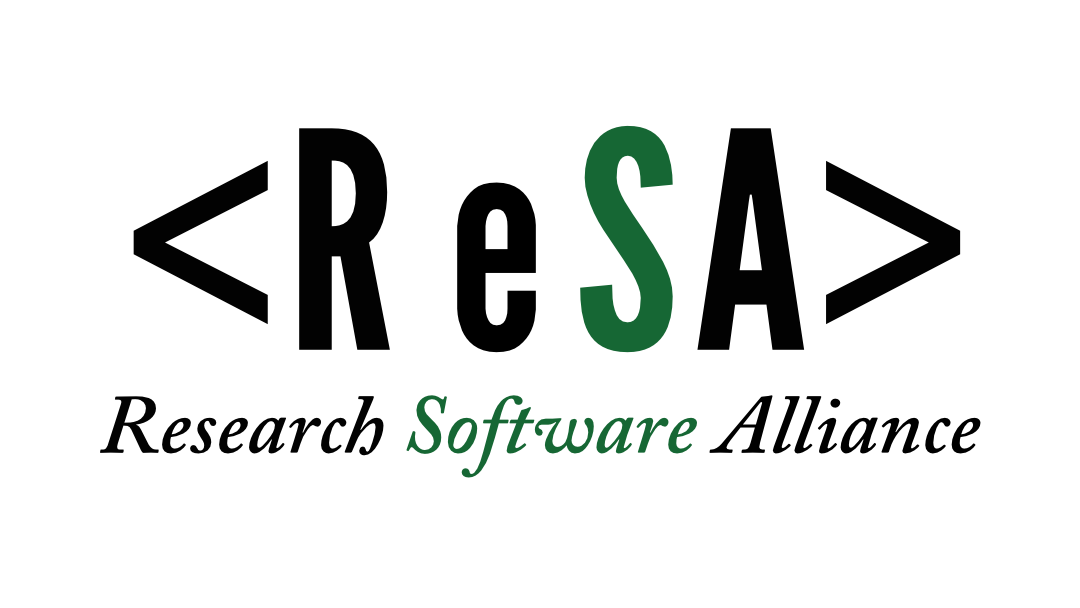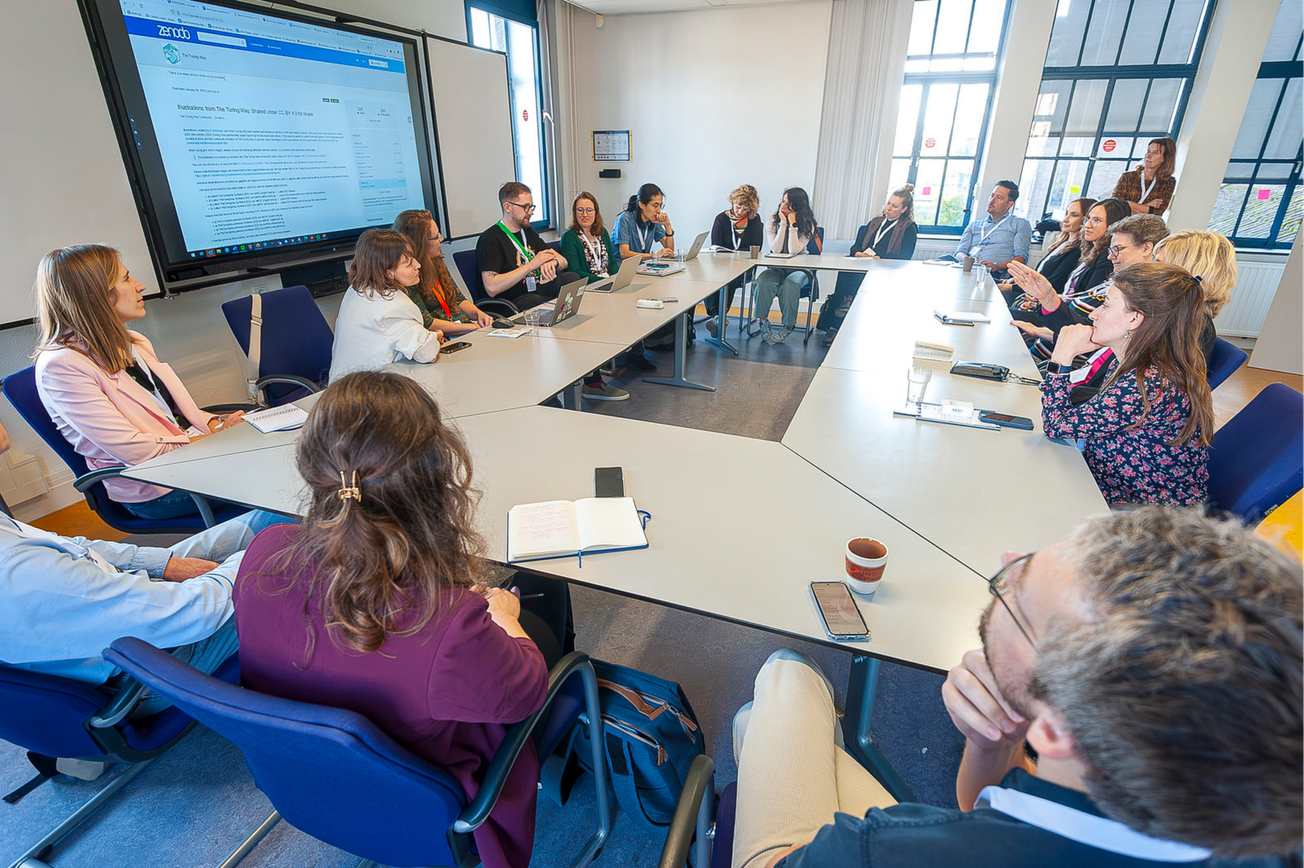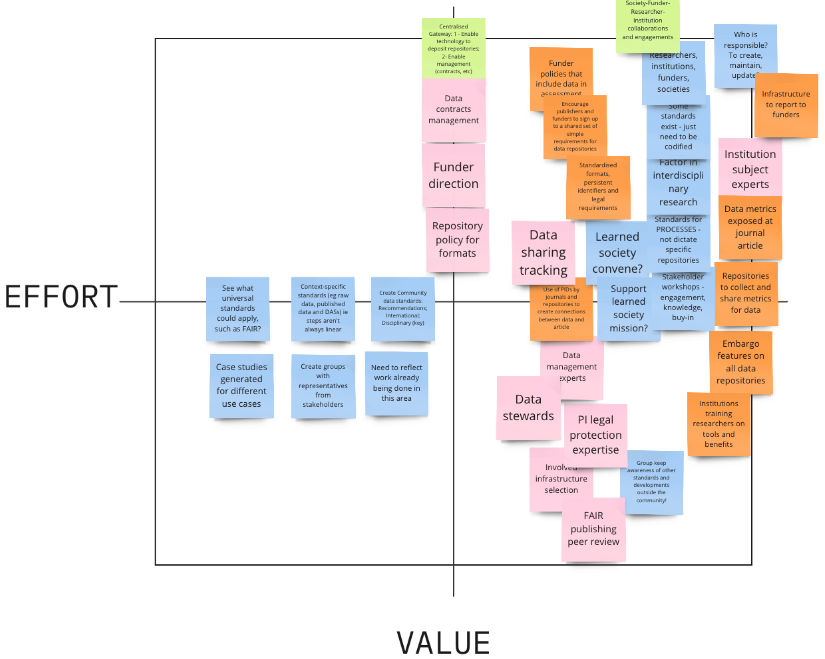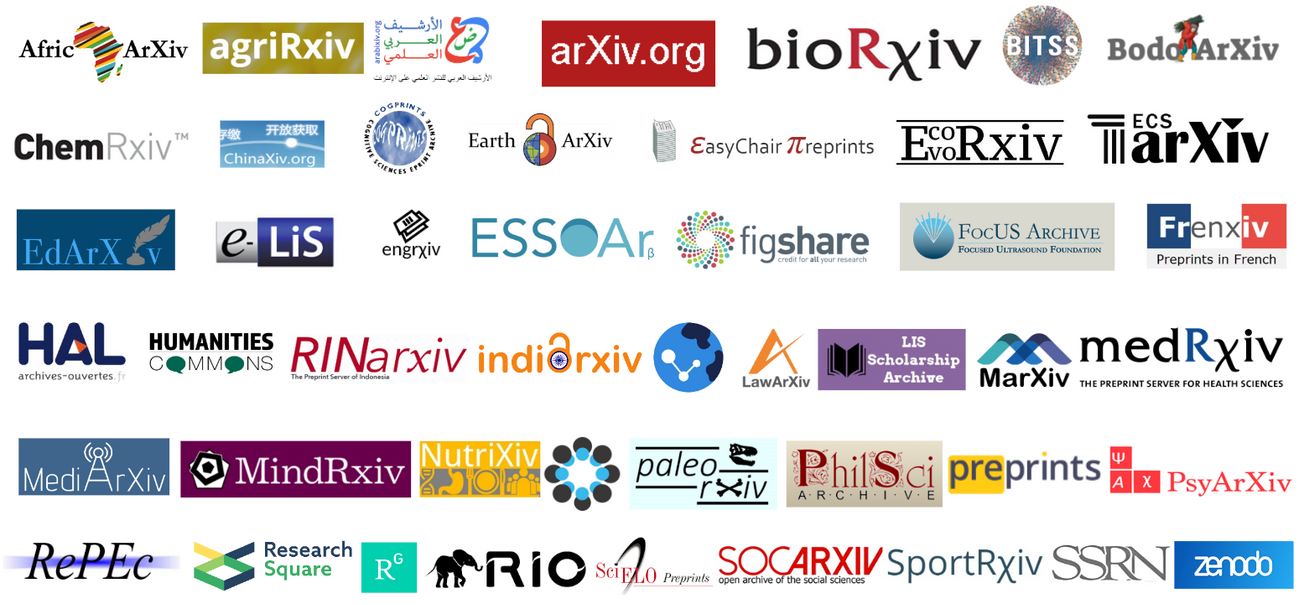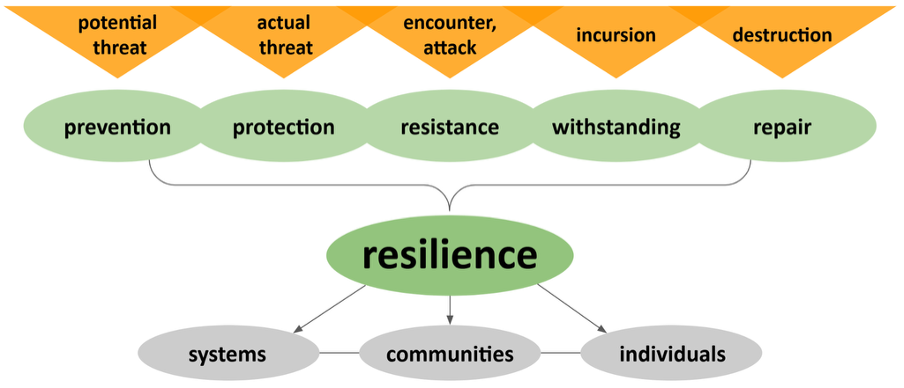Research software is a key part of most research today. As University of Manchester Professor Carole Goble has said, "software is the ubiquitous instrument of science." Creating and maintaining research software is a human effort, and as Yanina Bellina, rOpenSci Community Manager, has said, "the work of the people who develop and maintain research software is often hidden and needs to be recognized."
Studies of researchers at leading UK universities [1] and of postdoctoral researchers in the US [2] have found that over 90% use research software, over 65% see research software as fundamental to their research, and 25-55% develop software as part of the research.
Research software, being ubiquitous, is difficult to concisely define. One recent attempt [3] says that research software:
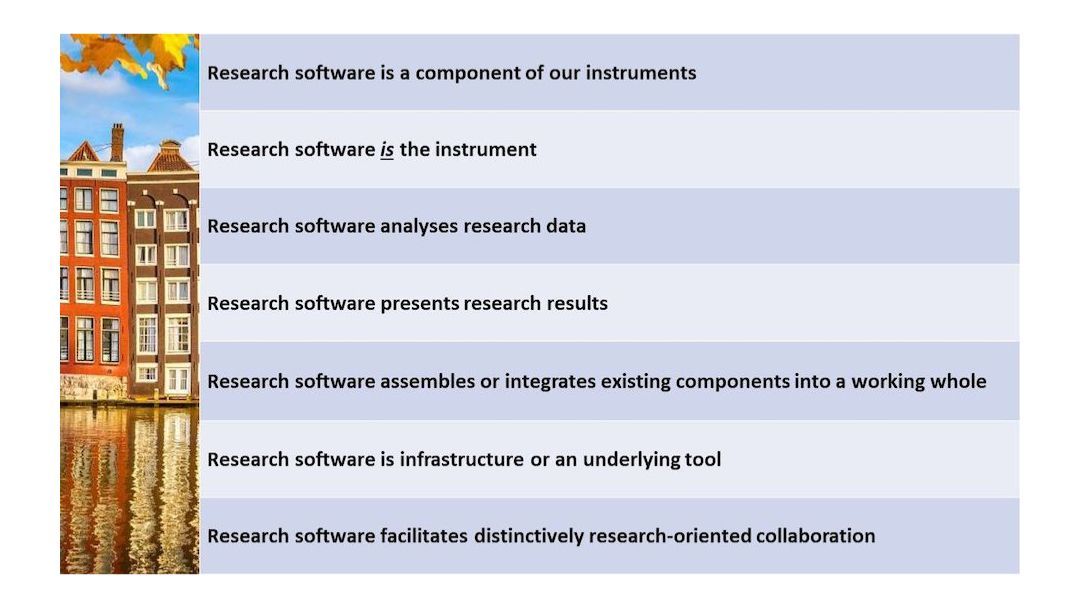
Once research software is developed, however, users can find bugs, users can want new features, and the underlying hardware and software on which the software is built (e.g., libraries, OS) can change. The research software needs to be manually maintained in response to these issues. In other words, research software is not a one-time investment, but requires ongoing maintenance.
Research software sustainability can be defined as occurring when the resources (people, funding, etc.) to enable maintenance are gathered and applied.
This is different from challenges for publications and datasets because while research software can similarly be a research result and research product, it has properties that differ from papers and datasets, and needs different policies and funding models.
Research Software Alliance (ReSA)
In response to these facts, the Research Software Alliance (ReSA) was founded in 2019 by the Australia Research Data Commons (ARDC), the Digital Research Alliance of Canada, the National Center for Supercomputing Applications (NCSA), the Netherlands eScience Center, and the Software Sustainability Institute (SSI) to help these organisations and other stakeholders collaborate on the advancement of the research software ecosystem.
ReSA's vision is that research software and those who develop and maintain it are recognised and valued as fundamental and vital to research worldwide, while its mission is to advance the research software ecosystem by collaborating with key influencers and decision makers.
ReSA is a fiscally-sponsored project of Code for Science & Society, has part time staff members who include a Director, Dr Michelle Barker, and Community Managers located in Africa, Asia, Australia and Canada, and is led by a steering committee chaired by Daniel S. Katz, Chief Scientist at NCSA at the University of Illinois Urbana Champaign. ReSA has received support totalling USD$663,500 in cash, and USD$344,000 (details are publicly available) as in-kind contributions from its sponsors, Founding Members, and Organisational Members.
Activities
ReSA accomplishes work primarily through forums and task forces.
Funders Forum
The ReSA Funders Forum, a collaboration of 30+ research software funding organisations, started in 2022. The organisations represented are currently about 2/3 government, 1/4 philanthropic, and 1/12 industry. Geographically, 41% are in Europe, 34% in North America, 17% in Australasia, and 4% each in African and South America.
The Funders Forum provides a formal mechanism for funders to share funding practices, address research software community challenges, facilitate networks and collaboration, and consider how to achieve long-term sustainability for research software. It meets monthly, with each meeting repeating twice in a day to allow those in different time zones to participate each time, and shifting in time from month to month to allow different sets of participants to form each time. Each meeting includes short presentations from funders on their new activities, and a discussion topic that is either led by ReSA or by a funder, such as on diversity, equity, and inclusion in research software, open source program offices, collaboration mechanisms, and landscape analysis. The Funder Forums also has working groups in which more focused activities can occur, such as planning for a multi-organisational funding call and defining policies around FAIR for research software.
Discussions in the ReSA steering committee and the funders forum led ReSA and the Netherlands eScience Center to co-convene the “International Funders Workshop: The Future of Research Software” in Amsterdam in November 2022, with representation from 45 funding organisations (those who provide monetary and/or in-kind support to research software and/or the people who develop and maintain it).
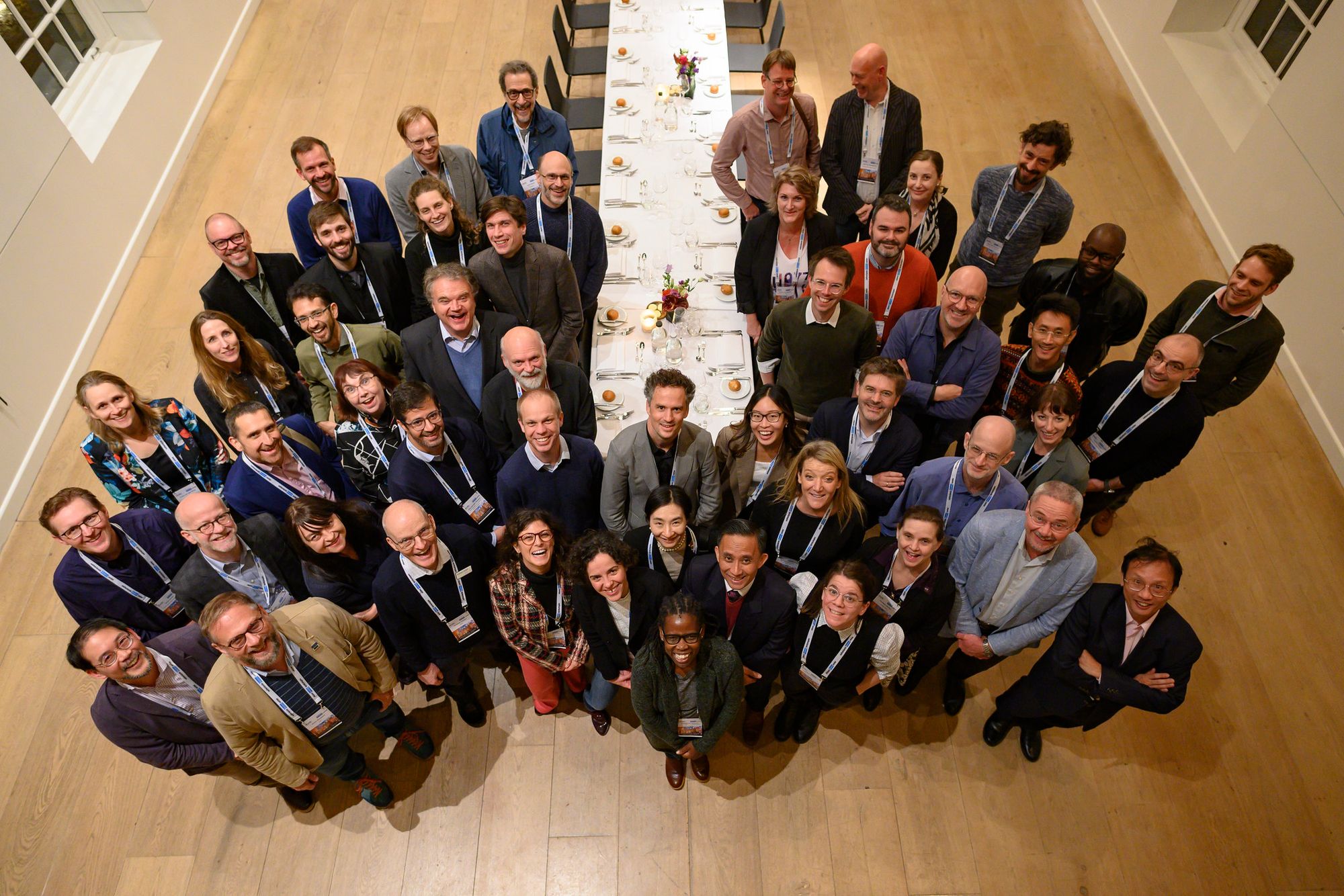
In this workshop, attendees discussed a draft of the Amsterdam Declaration on Funding Research Software Sustainability [4], which continues to be open for consultation.
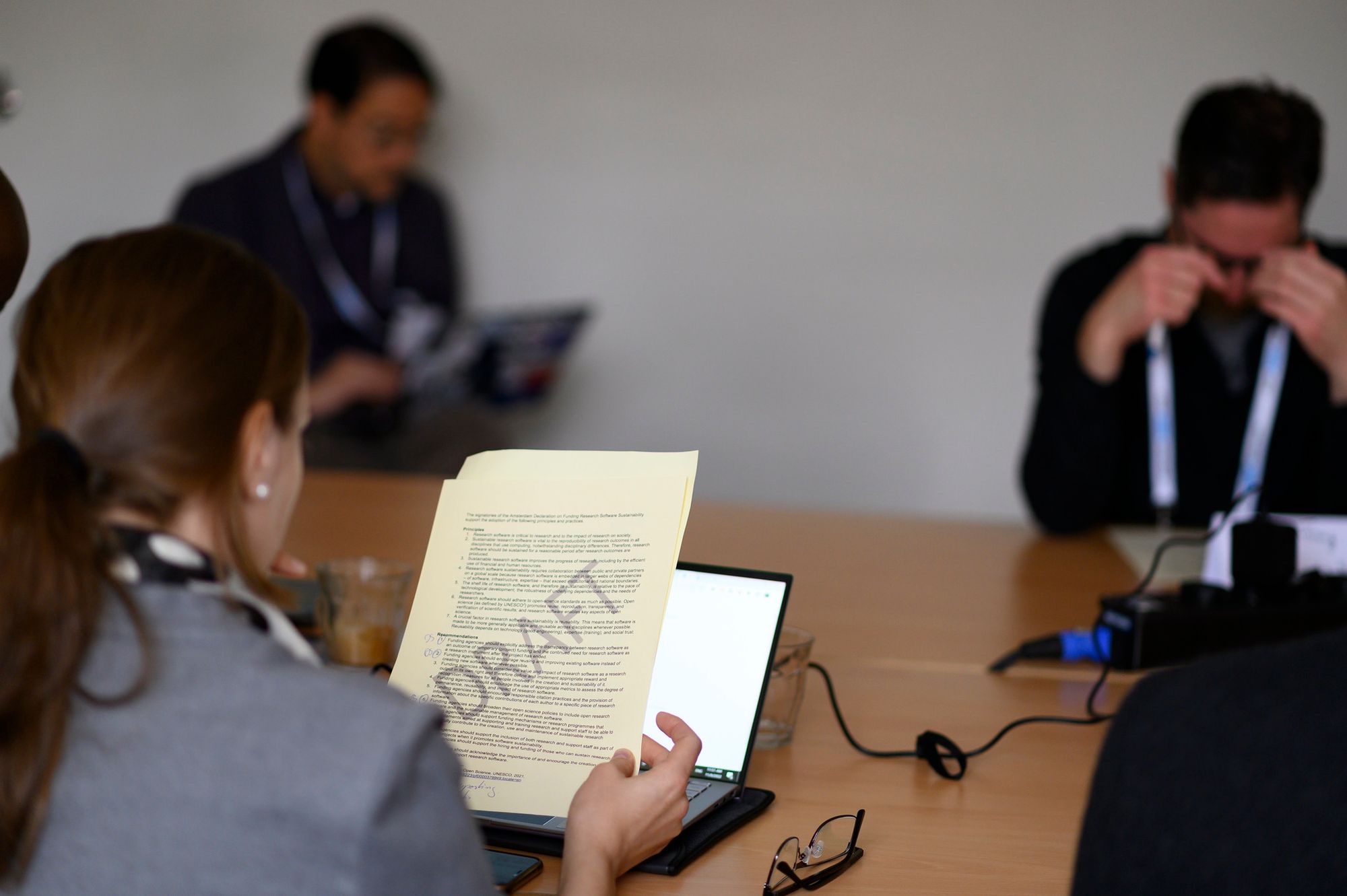
Community Forum
ReSA hosts an occasional online community forum for the global research software community, as an opportunity for participants to meet and share information. Each call features a short talk and follow-up discussion, with the aim of facilitating community consideration about what’s needed next to address particular issues. The Community Forum is open to everyone. Meetings occur at alternating times to maximise attendance by participants in different time zones. Meeting topics have included:
- Outcomes of Vive la différence - research software engineers [5], a workshop that considered how to reframe research software engineering to place diversity, equity and inclusion as a central organising principle
- The Research Software Roadmap
- Aligning publisher policies for sharing code
- The Research Software Community in the Global South [6]
- The International Funders Workshop
Task Forces
- Evidence for the importance of research software (completed, 2020): identified and analysed resources [7] that demonstrate the importance of research software to research outcomes, to provide information for sharing with key influencers.
- Software sections of RDA COVID-19 Guidelines and Recommendations for policy makers, funders and the research community (completed, 2020) [8]: helping COVID-19 stakeholders follow best practices to maximise the efficiency of their work, and to act as a blueprint for future emergencies.
- FAIR for research software (completed, 2022): Jointly with FORCE11 and RDA, developed the FAIR for research software (FAIR4RS) principles [9]
- FAIR 4 Research Software Roadmap (completed, 2022) [10]: Identified key stakeholders in areas arising from the application of the FAIR principles to research software, to guide strategic planning and investment. Consultation with key stakeholders enabled mapping of existing projects that apply some of the elements of the FAIR principles to research software into a longer-term framework to improve strategic alignment and potential collaborators/leads for parts of the Roadmap.
- Software landscape analysis (completed, 2022): Mapping the international research software community landscape
- Initial mapping (2020) [11]
- Expanded mapping of the Global South (2022) [6]
- Code availability (active): Jointly with FORCE11, working towards greater alignment on policy and other related actions for code (the code associated with the findings of an article) being made available alongside (or prior to) the publication of the article.
- Database of research funding software opportunities (active): maintaining, adding to, and analysing the database to better understand opportunities and their characteristics.
- Research institution policies to support research software (starting): is building a collection of institutional policies that support research software and the people who develop and maintain it, and work to better share them with interested stakeholders.
In addition, ReSA participates in ad hoc activities that support its mission, such as sharing diversity, equity, and inclusion best practices at the 2022 Vive la difference - research software engineers hybrid workshop [5].
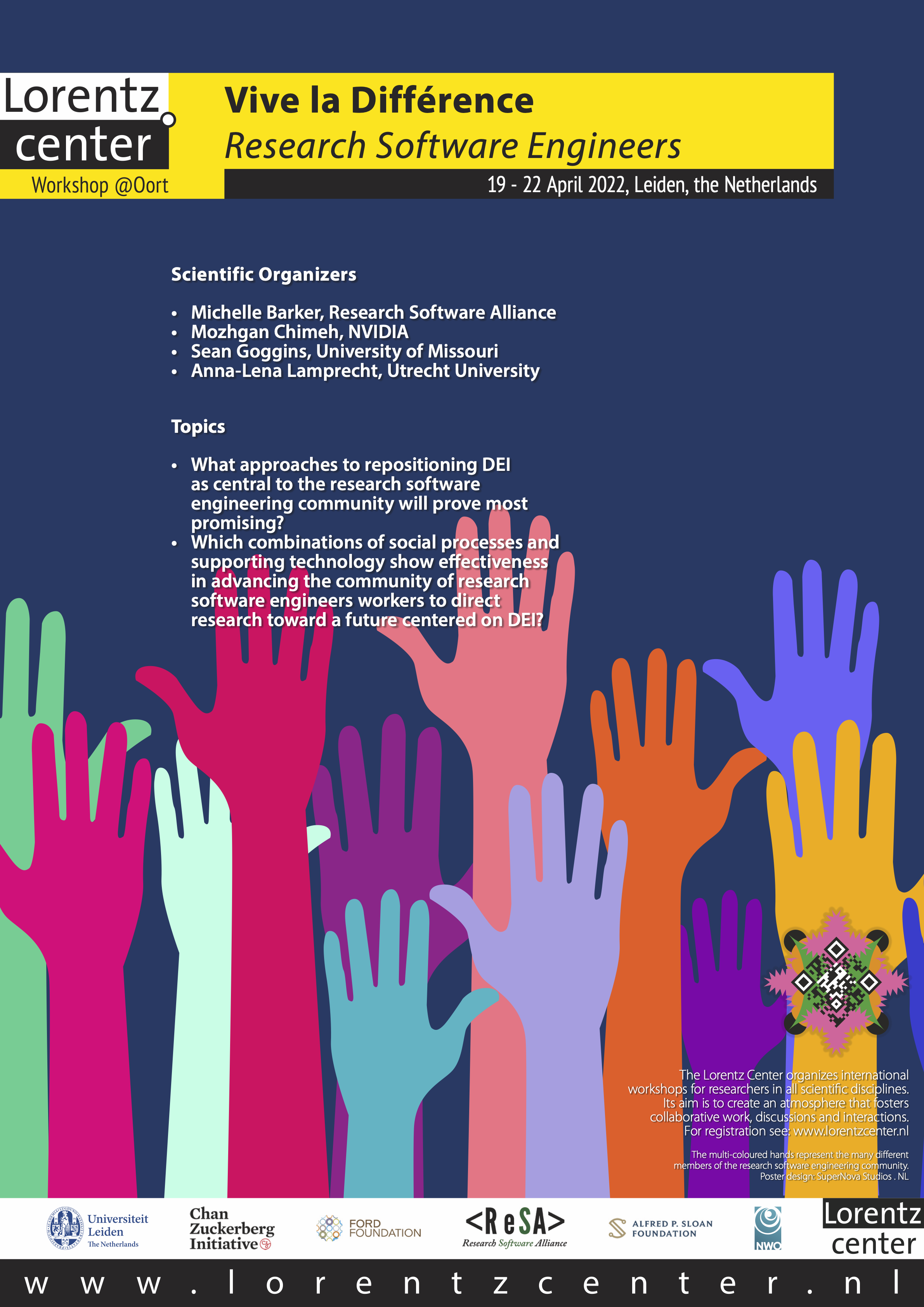
Participate
ReSA provides freely available resources that anyone can use to raise awareness of the importance of research software and a database or research software funding opportunities.
Anyone can sign up to receive updates on ReSA through its regular newsletter, provide information on new funding calls to our database, join task forces focused on specific activities, and join the ReSA Slack to share what is happening in their community.
Anyone who represents a funding organisation and wants to interact with other funders, can join the (free) Research Software Funders Forum.
Finally, ReSA is always looking for organisations who want to become recognised as organisational members in order to financially support its work.
References
- It’s impossible to conduct research without software, say 7 out of 10 UK researchers. Accessed April 13, 2023. https://www.software.ac.uk/blog/2014-12-04-its-impossible-conduct-research-without-software-say-7-out-10-uk-researchers
- Nangia U, Katz DS. Track 1 Paper: Surveying the U.S. National Postdoctoral Association Regarding Software Use and Training in Research. Published online August 30, 2017. doi:10.6084/m9.figshare.5328442.v3
- Nieuwpoort R van, Katz DS. Defining the roles of research software. Upstream. Published online March 14, 2023. doi:10.54900/9akm9y5-5ject5y
- Barker M, Hong NPC, Eijnatten J van, Katz DS. Amsterdam Declaration on Funding Research Software Sustainability. Published online March 16, 2023. doi:10.5281/zenodo.7740084
- Barker M, Leung MA, Martinez PA, et al. Report on Vive La Différence - Research Software Engineers. Zenodo; 2022. doi:10.5281/zenodo.6859709
- Martinez PA. The Research Software Community Landscape in the Global South. Published online October 10, 2022. doi:10.5281/zenodo.7179892
- Barker M, Katz DS, Gonzalez-Beltran A. Evidence for the Importance of Research Software. Zenodo; 2020. doi:10.5281/zenodo.3884311
- Research Data Alliance. Final release: COVID-19 guidelines. Published online 2020. doi:10.15497/RDA00052
- Chue Hong NP, Katz DS, Barker M, et al. FAIR Principles for Research Software (FAIR4RS Principles). Published online 2021. doi:10.15497/RDA00068
- Barker, Michelle. FAIR4RS Roadmap Report. Published online February 20, 2022. doi:10.5281/ZENODO.6239373
- Katz DS, Barker M, Martinez PA, Anzt H, Gonzalez-Beltran A, Bakker T. The Research Software Alliance (ReSA) and the community landscape. Published online March 11, 2020. doi:10.5281/ZENODO.3699950
Copyright © 2023 Daniel S. Katz, Michelle Barker. Distributed under the terms of the Creative Commons Attribution 4.0 License.


